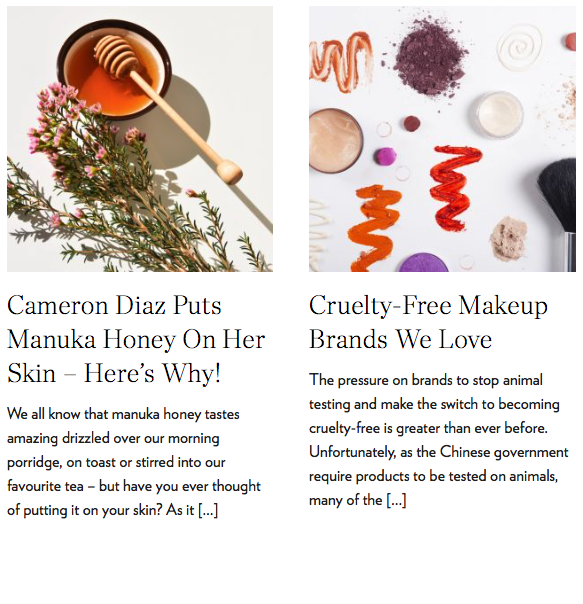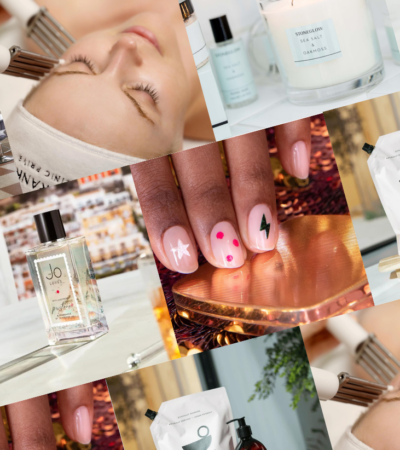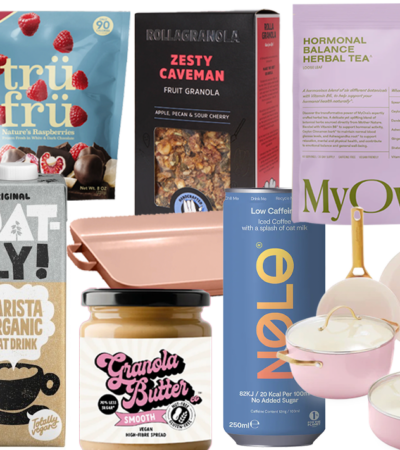Sensitive skin can be a demon, at times. Managing it can be incredibly difficult and you might often feel like you are constantly trying to balance the scales. Sometimes, you just can’t win! Post-summer, your skin may be suffering from sun damage and might appear to be a bit dehydrated and lack-lustre. During the winter, constant changes from arctic temperatures outside to stuffy central-heated homes can cause unwanted flare-ups. We spoke to Sean Patrick Harrington, Founder of Previse Skincare to get an understanding of what makes sensitive skin tick. With the help of Previse’s in-house dermatologists, here’s what you need to know…
What are some common traits of sensitive skin?
People with sensitive skin are easily affected by environmental factors. During the summer months, the skin can become direct and irritated as we move from humid outdoor conditions into drier, air-conditioned spaces. Heat usually amplifies sensitive skin concerns causing skin that is susceptible to inflammation to become raw, red, flakey, itchy and otherwise creating a great deal of discomfort. We recommend using a gentle, sulfate-free daily cleanser whilst avoiding astringent topical applications such as toners, serums, and atomizers which may contain alcohol, parabens, or artificial fragrances. Previse ZeroFragrance series is crafted specifically for clients with sensitive skin; to provide dermatology grade skin care for everyday use.
Are some people more prone to sensitivity than others? (i.e hereditary)
Absolutely yes. Genetic dermatological disorders are a small fraction of the broader range of complaints. The most common of these heredity complaints is psoriasis.
Generally speaking, most of us will suffer from temporary to life-time sensitivity concern. For instance, individuals with sensitive skin might include Fitzpatrick level 1&2, or fair skinned people with light eyes, whose bodies produce very little melanin. They are prone to UV complaints such as sunburn or worsening rosacea. Fitzpatrick level 5 and 6, those with deep mahogany skin tone, are prone to hypopigmentation and hyperpigmentation. Hypopigmentation is the loss of skin colour. It is caused by melanocyte or melanin depletion, or a decrease in the amino acid tyrosine, which is used by melanocytes to make melanin. Hyperpigmentation is a common, usually harmless condition in which patches of skin become darker in colour than the normal surrounding skin. This darkening occurs when an excess of melanin, the brown pigment that produces normal skin colour, forms deposits in the skin.
Whether a Fitzpatrick level 6 or down to Fitzpatrick level 1, a wide swath of people will suffer from some dermatological sensitivity concern at some point in their life. It is important to avoid bleaching products, aggressive exfoliation, and harsh products at all times, and consult your dermatologist when a skin condition is persistent and troublesome.
Should products containing fragrance be avoided?
Yes, absolutely! We developed a wide range of topical face and body care products specifically for patients and clients with sensitive skin. This includes people of all Fitzpatrick skin types who may have occasional or lifetime problems, as well as women who are considering starting or expanding the size of their family. During pregnancy, a woman’s body goes through significant hormonal changes. Our ZeroFragrance products, including MommyBalm, help attend to her needs whilst remaining safe for the fetus and newborn baby.
What are your thoughts on exfoliating?
Abrasive scrubbing will cause micro-tears in the skin. Too much exfoliation may aggravate underlying conditions. We recommend using a gentle exfoliator like a natural fibre cloth. Products featuring naturally derived jojoba beads, lactic acid or mandelic acid are exceptional for keeping the skin healthy. Clinically, for sensitive skin, we recommend exfoliating three to four minutes several times a month. Other skin types may increase the frequency. For all our patients and clients we stress the need to be gentle. The weight of one’s hands on the face is all that is needed. Pressing and otherwise scrubbing the epidermis is not a healthy practice. We crafted our Marine Granules specifically for patients with sensitive skin. Featuring botanical extracts like jojoba beads and marine algae, blended with fossilized algae, Marine Granules is the perfect addition to add texture to any cleanser. The dual benefit is your skin’s buff companion!
Is less more when it comes to skincare?
Yes. Thank you for asking this question! A simple routine with just a few products is easier to maintain and less costly! Products with minimal ingredients minimizes the risk of affecting your skin in a negative way. Our skin is one of our largest organs and incredibly resilient. However we stress our skin in so many ways; from over cleansing and removing healthy lipids, or oils, from the surface to blending far too many products – sometimes with unfriendly petrochemical based fragrances. Worse are the bleaching aids and retinals we see teens and young adults using. All this activity can make a topical stew which leads to unexpected reactions in the skin.
Is rosacea a form of sensitive skin?
Yes. Rosacea is a hypersensitivity, especially to sun exposure. Some individuals witness flareups to heat, spicy food and alcohol.
Do you have any tips for rosacea sufferers?
The most important tip: avoid the sun. We recommend a physical sunscreen that features titanium dioxide or zinc oxide. These physical barriers to UVA and UVB are less irritating than chemical sunscreens. Look for products for sensitive skin with anti-inflammatory ingredients like aloe vera, chamomile and oat extract. Avoid topical steroids. Topical creams including azelaic acid or ivermectin are often used to help retard flareup. In more severe cases we treat patients with Tetracycline and IPL (intense pulsed laser) with good results.
Can you provide an example of an ideal skincare routine?
Most of us only need a gentle cleanser plus moisturizer. We love the new pressed serums that blend the benefit of serum and moisturizer into one product. Our HydroMilk Pressed Serum is a star product with a huge following all over the world for this reason. Mature skin may need more moisture and sometimes a bit of repair. Our new Tremella Repair Cream features the Tremella mushroom plus two hyaluronic molecules. The Snow Mushroom offers as much hydration properties as HA, which give our cream triple benefit.
No routine is complete without sunscreen. For our patients who wear makeup with SPF 30 or greater, we advise allowing the makeup to perform the UV protection. Adding a sunscreen in addition to the makeup is not necessary and may actually irritate the skin due to various ingredients interacting. For those who are not wearing makeup, we continue to advise they utilize a physical sun screen that features titanium dioxide or zinc oxide.
Once a based skincare routine is established we work with our patients to customize an enhanced routine, which may include supplement products such as prescriptive aids, serums, products that feature anti-inflammatory and calming ingredients, pre and post pregnancy aids and more.
Should people with sensitive skin cleanse morning and night?
Ideally once daily is enough. Yet depending on the amount of physical exercise, sun and weather exposure, climate conditions and otherwise it is absolutely safe to cleanse twice daily. Critical is use gentle formulations, like sulfate-free cleansers cleaning lotions or milks with mild surfactants and rehydrate afterwards. Our Purify Marine Cleanser, which is part of our ZeroFragrance series, is an absolute hero for our sensitive skin patients and mothers-to-be!
What are your go-to skincare products for helping to reduce inflammation and flare-ups? Topical creams containing Azelaic Acid, Brimonidine or Ivermectin usually work very well with these conditions.
For more information on sensitive skin and Previse Skincare, click here.














